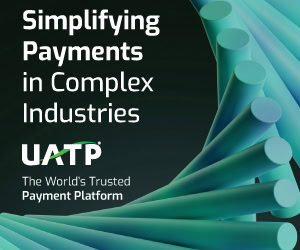They burst onto the scene some two short years ago, ChatGPT and other apps powered by artificial intelligence, have gone from a novelty to tools that are deeply integrated into many business functions across industries. Major companies such as Microsoft, Apple, Google and more are spending huge sums of money to either partner with Open AI (ChatGPT’s creator) or create and refine their own generative AI systems.
The world of business travel booking and expense management is no different, and as GenAI plays an increasingly larger role in changing the industry, it’s becoming clear that the transformative possibilities are almost literally endless.
As companies look to streamline operations and cut costs, AI can offer promising solutions by providing powerful tools for analyzing and optimizing travel spend. With its ability to sift through vast amounts of historical data, forecast future trends and provide real-time insights, AI has the potential to change how businesses approach travel expenses.
Apps and tools like ChatGPT are already being used to assist companies in developing more efficient travel policies, analyzing pre-trip and on-trip costs, and providing actionable insights into overall travel spend. By leveraging these technologies, businesses can gain a clearer understanding of their travel expenses, pinpoint areas for cost savings and make more informed budgeting decisions.
Whether it’s using natural language processing to interpret reports, employing machine learning algorithms to detect fraud, or automating compliance with company policies, AI is poised to transform corporate travel expense management, making the process faster, smarter, and more efficient.
Today’s Applications
Some operational areas where GenAI can immediately start making a difference include reading receipts, data merging, spend categorization, data normalization and automating reviews, says Steve Reynolds, chief strategy officer at Tripbam. “ChatGPT can do a much better job of scanning receipts and achieve a 95 percent-plus accuracy rate and capture more details,” he notes. AI can also play a role in combining travel data, receipts, and moving expenses into the correct buckets quickly and efficiently, he adds.
Regarding data normalization, Reynolds explains that “spend by hotel can get messy as different sources (GDSs) use different names. Using AI, we can normalize to a common name for better reporting.”
In addition, AI can help by parsing large sets of data to provide insights, such as getting a better handle on how much was spent the previous quarter in certain categories and how that can be better managed going forward, Reynolds says.
AI can also be used to review an expense report and automatically approve if everything meets company guidelines. The technology can also revolutionize expense submission by automating coding and categorization, says Amy Padgett, SVP, travel ecosystem for Center, an integrated expense management solution.
“This is bringing us closer to eliminating the traditional expense report altogether,” she maintains. “AI tools capture expenses, auto-code them, and streamline the approval process by automatically approving compliant expenses based on predefined criteria. Travel managers can also leverage AI to build personalized itineraries, track real-time pricing changes, and aggregate travel data from multiple platforms for a comprehensive view without manual intervention.”
Padgett says that AI-driven insights can help enable teams to spot spending patterns, identify cost-saving opportunities, and refine policies dynamically. “Integrated, real-time policy management allows every expense – including off-program travel bookings – to be instantly evaluated against corporate policies, expediting approvals and simplifying month-end close processes,” she says. “These innovations make expense management smarter, faster, and more efficient.”
Another area where AI can be a boon for travel managers is in fraud detection, says Philip A. Ziegler, chief technology officer for UATP. “AI algorithms can analyze patterns in payment data to detect anomalies and potential fraud in real-time, enhancing security for travel transactions,” says Ziegler.
Indeed, this is one area where AI has already seen serious adoption. According to a survey of financial institutions from Mastercard, nearly half had already integrated AI-powered tools into their fraud detection systems, and 93 percent planned to invest in fraud for AI in the next two to five years.
Patterns & Policies
Beyond monitoring and enforcing corporate travel policies, AI can also play a key role in helping to establish policies both now and in the future. “With the digitization of expense reporting, AI can automate expense categorization and analysis,” says Charlie Sultan, president of Concur Travel at SAP. “In time, these algorithms can adapt to learn more accurate categorization and data interpretation to reduce manual data entry and analysis. Analytics and insights from AI can support the development and refinement of corporate travel policies by offering in-depth data visualizations and analysis of historical data and forecasts of future expenses,” Sultan says.
Furthermore, through the utilization of large language models, corporate travel managers may also be able to easily benchmark the aggregate of how other companies of their size or industry or location have set their policies, Sultan adds.
“Because policies may no longer need to be written in a large document,” he says, “travel managers may be able to adjust their policies more dynamically. Integrating AI with travel and expense solutions can also help automate the tracking of sustainability metrics, enabling organizations to have a better understanding of their environmental footprint and make data-driven decisions when refining travel policies and advancing sustainability efforts.”
With integrated travel and expense solutions, AI can organize and distill a plethora of data to uncover information to inform future travel decisions. “AI is critical for digesting and interpreting historical data and finding patterns that would otherwise go unnoticed,” Sultan notes. “Accurate and timely estimates enable companies to stay on budget or uncover savings when planning trips. AI tools that are integrated and plugged into the company ERP will also be able to help identify savings by suggesting meeting locations and dates for team members that are in different locations based on the cost of airfare and lodging,” he says.
“AI learns from your organization’s travel and spend patterns,” observes Center’s Padgett. “With a card-led expense solution and integrated T&E, every transaction provides data for AI to analyze, predict, and optimize.”
Over time, AI can even forecast total trip costs based on the travel patterns of a particular organization and even identify potential savings aligned with company policies and goals. “For example, if cost-cutting is necessary, AI can adjust travel policies to prioritize revenue-generating activities instead of reducing travel across the board, ensuring smarter, more strategic decisions,” says Padgett.
Reynolds agrees that AI can enable businesses to budget more accurately for future trips with an analysis of historical estimates. “By bucketing the spend more accurately per trip, we can then benchmark each trip against a historical average and identify potential savings or losses,” says Reynolds. “AI can also be used for pre-trip approvals without having the traveler search for flights and hotels prior. “
The End-to-End Journey
As artificial intelligence continues to evolve, its impact on business travel will likely become more comprehensive, transforming the entire journey from booking to expense reconciliation. From predictive booking algorithms and personalized itineraries to automated expense reporting and virtual travel assistants, AI has the potential to revolutionize the end-to-end process.
AI can already power dynamic policy management, enhanced cost savings, improved traveler satisfaction, and a move toward eliminating traditional expense reports. And as AI continues to evolve, Padgett envisions even more powerful applications for corporations.
“By centralizing all spending on corporate cards, AI will proactively manage expenses in real time, flagging out-of-policy purchases, suggesting cost-saving alternatives, and tracking budgets as they happen,” Padgett predicts. “Automated fraud detection will be enhanced, with AI identifying unusual transactions instantly. AI will also drive more accurate expense forecasting, automate reconciliation by matching receipts to transactions, and even suggest personalized travel recommendations based on previous spending patterns. Voice-activated expense reporting and dynamic policy updates will streamline processes even further, while automated tax and VAT compliance will simplify tax calculations. Additionally, real-time tracking of travel patterns will help businesses better manage traveler well-being and duty of care.”
AI also has the potential to benefit business travelers and travel managers in the future by helping to mitigate the unexpected headaches that arise during business travel, says Sultan. He notes that in the past year, nine out of 10 global business travelers have faced travel disruptions, according to the sixth annual SAP Concur Global Business Travel Survey.
“Business leaders can’t control factors like inclement weather, IT outages or other external forces that cause disruption, but as AI tools evolve, leaders will be able to use AI to simplify travel expense management and mitigate business travel headaches,” he says.
“AI tools like chatbots and smart assistants will answer questions and ensure policy compliance when adjusting itineraries on the fly. Large language models, in combination with natural search, will simplify the process for many travelers. They’ll be able to easily understand their companies’ travel policy by simply asking AI things like ‘Can I fly in business class? Is this ticket refundable?’”
Generative AI has the power to aid travelers even more, like automatically rebooking travelers when their flight is canceled or adjusting itineraries due to delays. “While expenses nearly write themselves now, generative AI could allow employees to submit expenses using voice commands or automatically adapt expense policies in real time based on spending behaviors and organizational needs,” he says.
Using AI, integrated solutions will be able to ascertain the best times to take a business trip, identify whether the traveler has enough vacation time to extend the trip, automatically request the vacation time, and even submit for a foreign visa if needed, and automatically expense the relevant portions of the trip without the traveler having to do much research.
In the future, AI will also enable hyper-personalized travel recommendations based on individual traveler preferences and past behaviors, says UATP’s Ziegler, and can even help corporations track efforts such as meeting sustainability goals. “AI could play a role in measuring and optimizing the carbon footprint of corporate travel, helping companies align travel policies with sustainability goals.”










